In a world where coding often feels like herding cats, functional programming languages step in like a superhero with a cape made of pure logic. These languages, with their elegant approach to problem-solving, can make even the most complex tasks feel like a walk in the park—or at least a leisurely stroll through a well-organized garden.
Table of Contents
ToggleOverview of Functional Programming Languages
Functional programming languages emphasize a declarative programming style. These languages enable developers to write code using mathematical functions, promoting a clear separation between data processing and state changes.
Definition and Principles
Functional programming centers on the concept of functions as first-class citizens, meaning functions can be assigned to variables, passed as arguments, or returned from other functions. Immutable data structures play a key role, ensuring that data cannot be modified once created. Recursion replaces traditional loops, while side effects are minimized. This leads to code that is often easier to reason about and maintain.
Advantages of Functional Programming
Functional programming offers several advantages. Code readability improves due to its declarative nature, allowing developers to express logic more clearly. The absence of side effects leads to fewer bugs, simplifying debugging and testing processes. Higher-order functions enable more reusable components, thus promoting modularity. Performance may improve as modern compilers optimize functional code efficiently. Overall, these factors contribute to better maintainability and reduced complexity in software development.
Popular Functional Programming Languages

Several functional programming languages stand out for their unique features and widespread use in the software development community.
Haskell
Haskell represents a purely functional programming language that emphasizes high-level abstractions. Strong static typing enhances code reliability, making it easier to catch errors at compile time. Lazy evaluation optimizes performance by deferring computation until absolutely necessary. Libraries like Hackage provide extensive resources and community support for developers. Many industries leverage Haskell for tasks requiring concurrent programming or complex algorithms.
Scala
Scala merges functional and object-oriented programming, offering flexibility in design. This language runs on the Java Virtual Machine, allowing seamless integration with existing Java libraries. Its concise syntax promotes clean code and reduces boilerplate, making development faster. Scala’s powerful features, such as case classes and pattern matching, simplify complex data manipulation. Companies in sectors like data science and web development frequently adopt Scala for its robustness and versatility.
Clojure
Clojure is a dynamic functional programming language designed for simplicity and concurrency. Running on the Java Virtual Machine, Clojure benefits from existing Java libraries while enabling functional paradigms. Its emphasis on immutable data structures promotes safer code practices. Clojure’s powerful macros allow developers to create domain-specific languages easily. Organizations focusing on real-time data processing or web applications often choose Clojure for its performance and ease of use.
Use Cases for Functional Programming
Functional programming languages offer unique benefits across various domains, including web development, data analysis, and artificial intelligence.
Web Development
Web development frequently leverages functional programming for its expressive syntax and modularity. React, a popular library built on JavaScript, embraces functional programming concepts, enabling developers to create reusable UI components efficiently. Libraries like Redux also benefit from functional principles, emphasizing immutability and predictable state management. Furthermore, the ability to compose functions allows for streamlined development processes and cleaner codebases, which contribute to improved maintainability.
Data Analysis
Data analysis stands to gain significantly from functional programming’s efficiency in processing large datasets. Languages like Scala and R utilize functional approaches to handle data transformations seamlessly. Using functions as first-class citizens, analysts can write concise code without side effects, fostering enhanced data integrity. Additionally, parallel processing capabilities inherent in functional languages support faster computations, making them ideal for real-time analytics tasks. This efficiency becomes crucial when analyzing vast volumes of data.
Artificial Intelligence
Artificial intelligence increasingly incorporates functional programming due to its strengths in handling complex algorithms. Languages like Haskell provide powerful abstractions suitable for developing AI models. Functional programming’s emphasis on immutability helps maintain consistency within AI systems. Models benefit from the clear separation of data and functions, which facilitates debugging and iteration. Moreover, lazy evaluation optimizes resource usage, enhancing performance when training machine learning algorithms. These features make functional programming a compelling choice for AI development.
Challenges in Functional Programming
Functional programming presents various challenges, which developers must navigate to harness its full potential. Below are key factors affecting its adoption and usability.
Learning Curve
Learning functional programming often proves challenging for newcomers. Many programmers accustomed to imperative paradigms face difficulty grasping concepts like higher-order functions and immutability. Transitioning from a stateful approach requires a shift in mindset, making it essential for practitioners to invest time in understanding functional principles. Mastering languages like Haskell or Scala demands dedication and practice, which might deter some developers. However, resources such as online courses and community forums offer support, helping ease the transition.
Performance Considerations
Performance issues can arise when implementing functional programming techniques. Function calls and higher-order abstractions may lead to increased overhead, affecting execution speed. While compilers for functional languages optimize code well, some developers observe performance trade-offs compared to more traditional approaches. Certain scenarios, especially those involving heavy computation, may benefit from alternative paradigms to improve efficiency. Profiling and benchmarking are crucial in identifying bottlenecks, allowing developers to make informed decisions about when to apply functional programming principles.
Future of Functional Programming Languages
Functional programming languages are poised for growth as technology evolves. Increasing interest in distributed systems and cloud computing drives the demand for languages that promote immutability and concurrency.
Trends and Innovations
Advancements in functional programming spark excitement in various domains. One notable trend is the integration of functional programming concepts into mainstream languages like JavaScript and Python. These languages adopt functional paradigms, enhancing their expressiveness while preserving existing ecosystems. Another innovation is the rise of domain-specific languages that leverage functional principles, simplifying complex problem-solving in fields like data science and machine learning. Additionally, the widespread adoption of functional reactive programming fosters improved event-driven architectures, better handling of asynchronous data streams.
Community and Ecosystem
The functional programming community thrives, fostering collaboration and knowledge-sharing. Online platforms such as GitHub and Stack Overflow host numerous projects and discussions focused on functional programming languages. Developers contribute to extensive libraries and frameworks, enhancing functionality and usability. Conferences and meetups bring enthusiasts together, promoting ongoing learning and innovation. Moreover, educational resources like MOOCs and online courses facilitate easier access to functional programming concepts, attracting newcomers. As the community grows, the ecosystem of functional programming languages becomes more robust and supportive.
Functional programming languages offer a compelling approach to software development by emphasizing clarity and modularity. Their ability to simplify complex tasks and enhance code maintainability makes them an attractive choice for developers across various domains. As the technology landscape evolves, the integration of functional principles into mainstream languages and the rise of specialized languages signal a bright future for this paradigm.
The growing community around functional programming fosters collaboration and innovation, ensuring that both newcomers and experienced developers can benefit from shared knowledge and resources. Embracing functional programming can lead to cleaner code and more efficient solutions, ultimately driving progress in the ever-changing world of software development.




